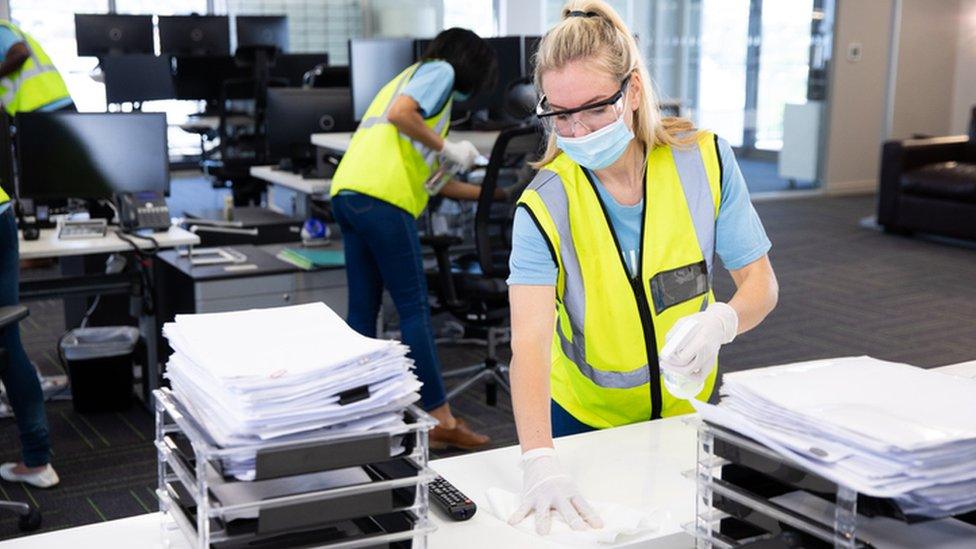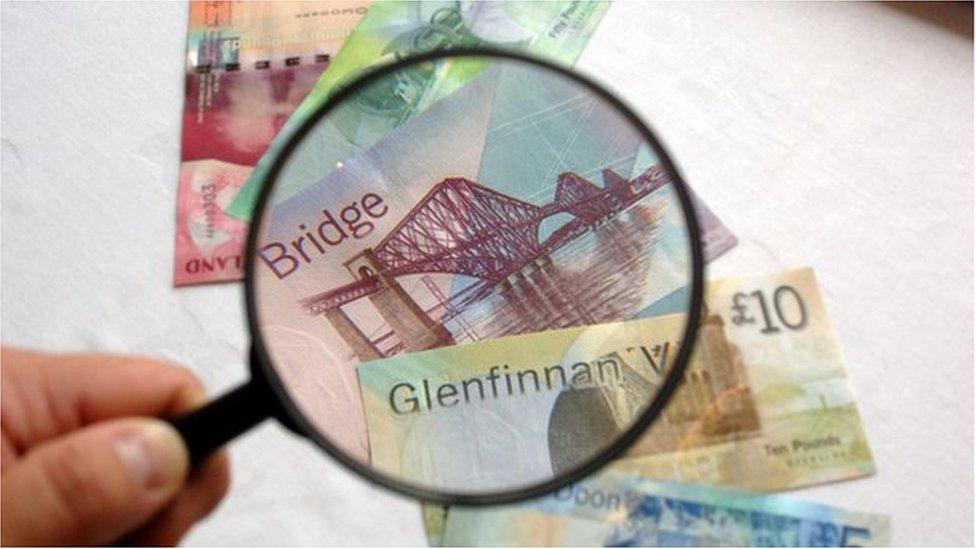IPPR: Employers should face tax penalties over low pay
- Published

Employers who fail to meet minimum standards on pay and conditions should face tax penalties, according to a think tank study on fair work.
The Institute for Public Policy Research (IPPR) argued radical action was needed to move out of the Covid-19 crisis with a fairer labour market.
It cited evidence of poor progression out of routine jobs, and uncertainty for many about working rotas.
Its report said women and minorities were particularly badly affected.
The study found women were 44% more likely to experience low pay than men, while black and ethnic minority workers were 38% more likely than white workers.
The authors defined low pay as less than the real living wage of 2019/20, which was set at £9.30 an hour.
The report argued for an easier transition to paying for childcare, a tapering of education maintenance allowance for young people and improved in-work training.
It suggested penalties for employers judged to have unfair pay and conditions, and business rates reductions for those delivering on fair work criteria.
It also argued that Covid-19 support funds for businesses should be contingent on them offering better employee benefits in order to combat "an endemic of low pay and precarious work".

IPPR asserted that many jobs were not providing workers "enough to make a decent life for themselves and their families".
"The sectors hardest hit by Covid-19 are also some of Scotland's lower paid sectors, and it is likely that they will need ongoing support and reform to rebuild following the pandemic," it said.
IPPR Scotland senior research fellow Rachel Statham said: "Fair work should provide a living income - but too many people in Scotland don't have the pay, hours or working conditions they need to build a decent life for themselves and their families.
"That's why, as we look towards recovery from the Covid crisis, we must now step up efforts to make Scotland a fair-work nation.
"As a first step, the Scottish government should come together with employers and unions to drive up pay, hours and conditions in those sectors hardest hit through the crisis, like hospitality, retail and social care."
'Good progress'
A Scottish government spokesman said "nobody should be working in an insecure, unstable job that doesn't pay the real living wage".
He said: "Good progress has been made on the real living wage in Scotland, with the number of accredited living wage employers up from 14 in 2014 to over 2,000 in 2021.
"Over 47,000 workers have seen an uplift in their pay to at least the real living wage."
He added: "Our new national living hours accreditation scheme for Scotland recognises that the number and frequency of work hours are critical to tackling in-work poverty.
"Together with the Poverty Alliance and Living Wage Scotland, this new scheme will help alleviate in-work poverty and create more secure, sustainable and satisfying jobs."


Related topics
- Published17 August 2021

- Published29 December 2019
